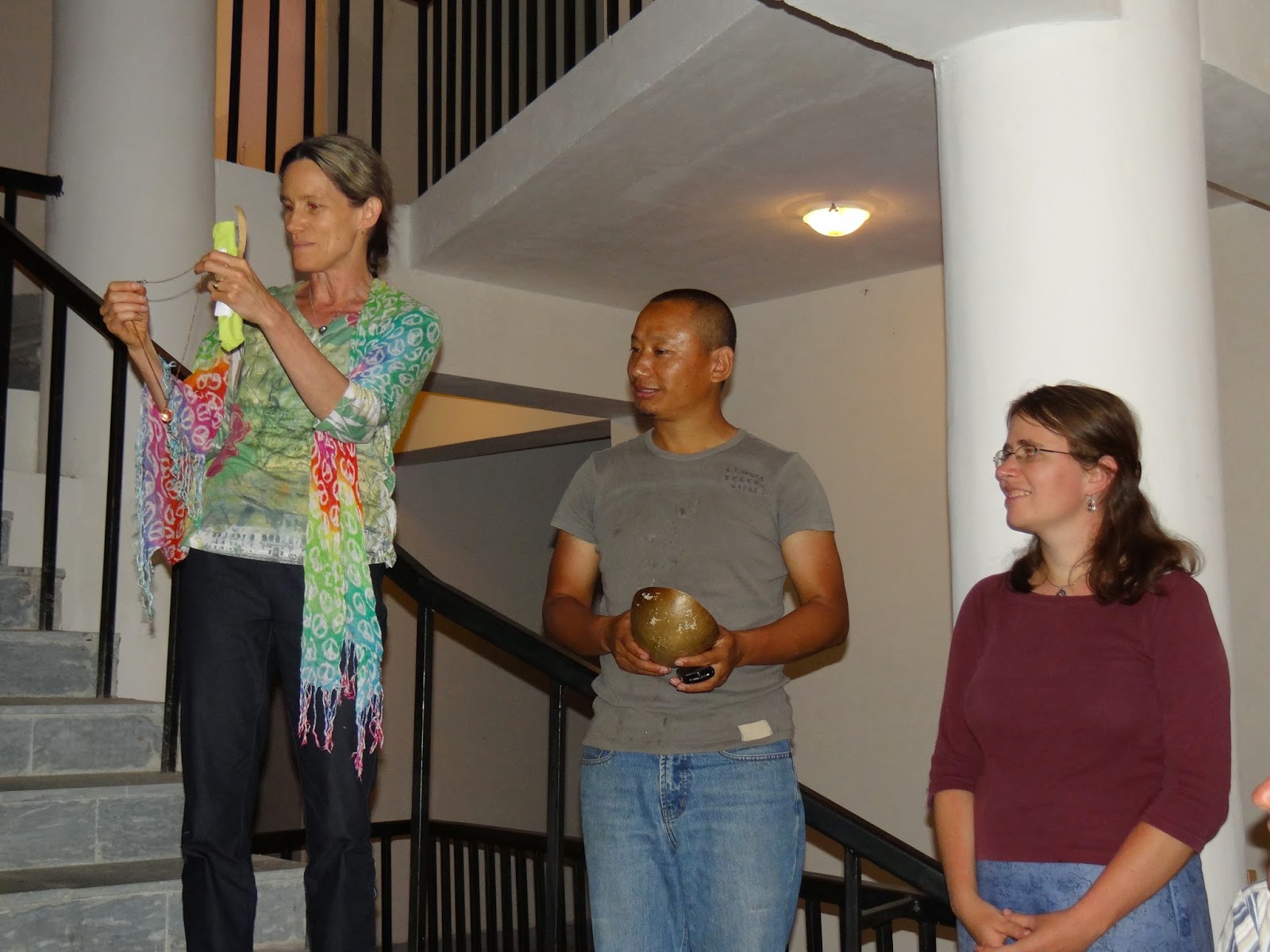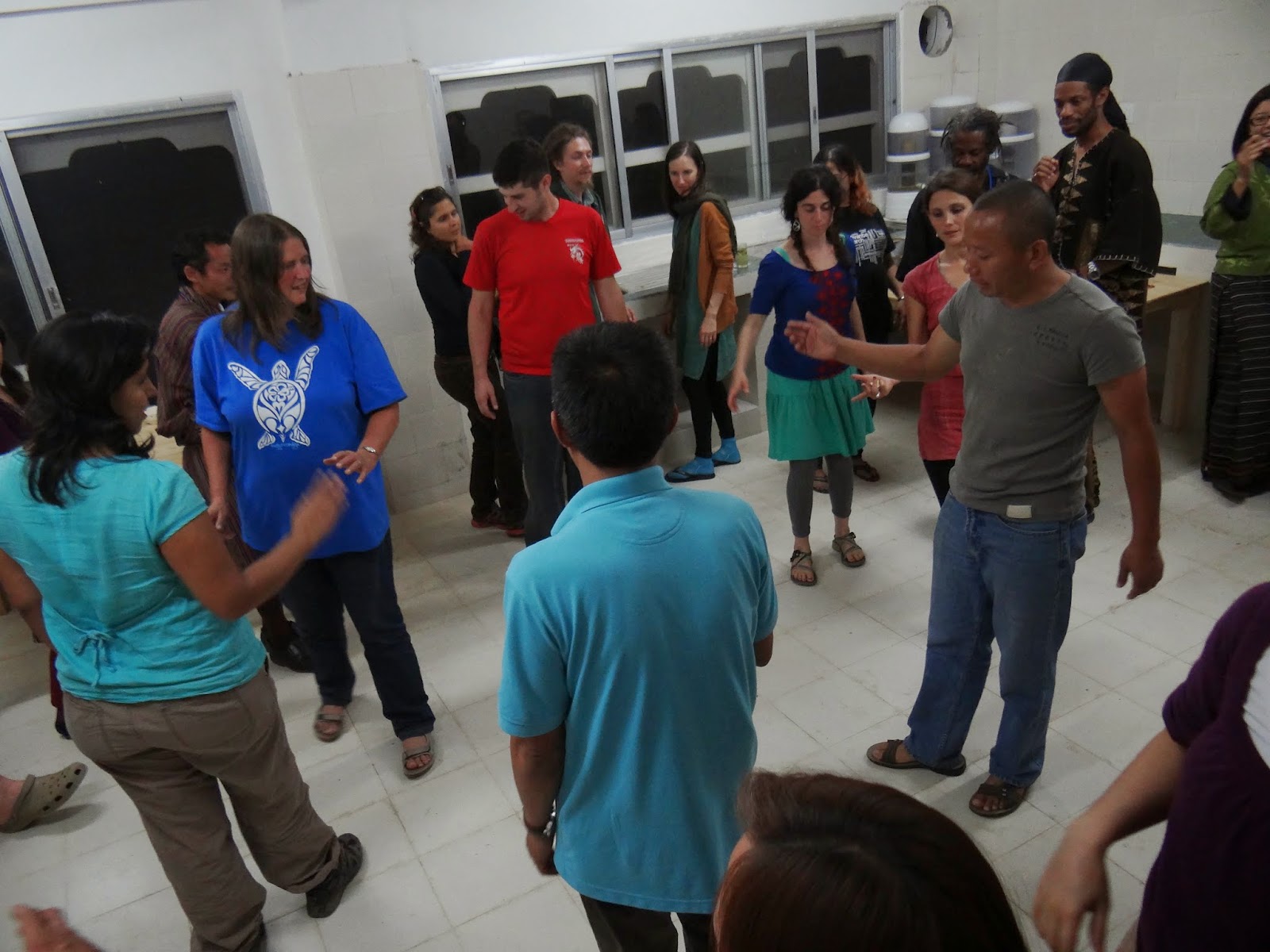 After
arriving in Lobesa in the dark of the night and retiring to bed following
dinner, we engaged in 2 days of intense discussion, debates and considerations.
This occurred indoors while the monsoon rains blessed the farmers who were
anxiously waiting for it. However, on the day of our field visit, we awoke to a
warm and bright sunny day that seemed to present itself specifically for us.
After breakfast we walked down the steep slopes boarded the buses for our long
awaited journey. Driving through the villages was remarkable, with many smiling
faces and interesting passersby that almost always greeted us with a smile and
a wave. A brief stop at on the outskirts
of the hospital allowed us the chance to grab some locally made cheese and get
a few photo ops. The next location was the Lingmuteychu Watershed. It allowed
us to appreciate the importance of water to the survival of the local
communities. What was intriguing was the way in which water is shared between
the communities that live at various altitudes and the dynamics that surround
this phenomenon.
After
arriving in Lobesa in the dark of the night and retiring to bed following
dinner, we engaged in 2 days of intense discussion, debates and considerations.
This occurred indoors while the monsoon rains blessed the farmers who were
anxiously waiting for it. However, on the day of our field visit, we awoke to a
warm and bright sunny day that seemed to present itself specifically for us.
After breakfast we walked down the steep slopes boarded the buses for our long
awaited journey. Driving through the villages was remarkable, with many smiling
faces and interesting passersby that almost always greeted us with a smile and
a wave. A brief stop at on the outskirts
of the hospital allowed us the chance to grab some locally made cheese and get
a few photo ops. The next location was the Lingmuteychu Watershed. It allowed
us to appreciate the importance of water to the survival of the local
communities. What was intriguing was the way in which water is shared between
the communities that live at various altitudes and the dynamics that surround
this phenomenon. Finally, we traveled to see the Punakha Dzongkhag which was originally known as the Palace of Great Happiness that is huddled at the confluence of the Pho Chhu (father) and Mo Chhu (mother) rivers.
It was truly an amazing experience, with beautiful wall paintings and the serenity of Buddhist culture. Suffice it to say that some members of the team ended up in restricted areas of the temple totally oblivious of their folly. The day ended in fine style with a nice party to bring the curtains down on the workshop.


















